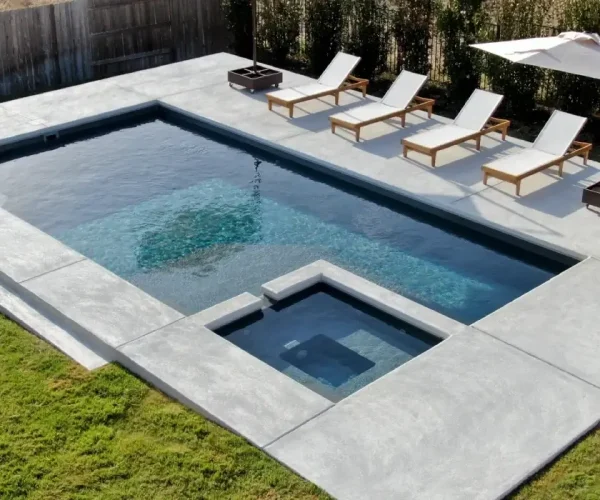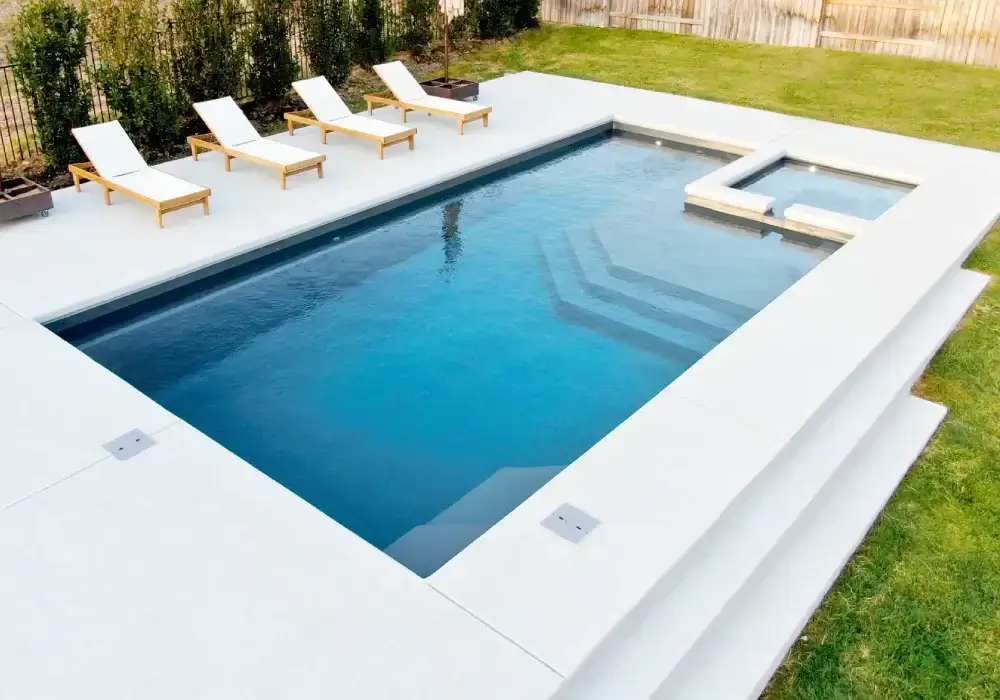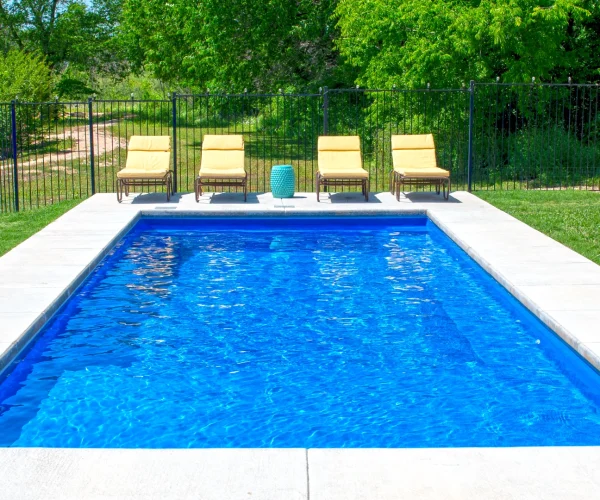Types of Pools
Choosing the Right Pool: Fiberglass, Vinyl Liner, and Concrete Explained
Fiberglass Pools: Sleek, Durable, and Low-Maintenance

Clients really enjoy the services we provide!

Advanced Dealer Academy Award
Here’s what our customers have to say about their experience. Their stories reflect our commitment to quality, service, and peace of mind.



Vinyl Ester Resin vs. Polyester Resin: What’s the Difference?
When comparing fiberglass pools, the quality of the resin is one of the most important (and often overlooked) factors.
Vinyl Ester Resin Pools
Polyester Resin Pools
| Feature | Polyester Resin | Vinyl Ester Resin |
|---|---|---|
| Water Resistance | Absorbs water over time, leading to osmosis (blistering) and possible delamination. Less durable in submerged environments. | Highly resistant to water absorption. Prevents osmosis and blistering. Ideal for long-term submersion. |
| Durability & Strength | Prone to cracks, fading, and structural breakdown. Typically lasts 10–15 years. | Superior strength, flexibility, and impact resistance. Often lasts for decades with minimal maintenance. |
| Chemical & UV Resistance | Reacts poorly to pool chemicals and UV rays. Faster surface deterioration and discoloration. | Excellent resistance to chemicals and UV rays. Maintains structure and appearance over time. |
| Cost | Lower initial cost. Common in budget or entry-level pools. Higher long-term maintenance and repair costs. | Higher upfront investment (often 2x polyester), but lower lifetime cost due to reduced repairs and maintenance. |
| Maintenance Needs | Requires frequent maintenance due to algae growth, blistering, and chemical wear. | Low-maintenance. Non-porous, resists algae, and requires fewer chemicals. |
| Aesthetic Longevity | Surface becomes rough and discolored over time due to blisters and wear. | Smooth, glossy surface stays intact for years, enhancing beauty and home value. |
If you’re investing in a fiberglass pool, a vinyl ester resin model is hands-down the better long-term choice. You’ll enjoy fewer maintenance headaches, better durability, and a cleaner, more reliable pool surface.
Vinyl Liner Pools: Lower Cost, But Higher Maintenance

Concrete Pools: Highly Customizable, But High Maintenance

Frequently Asked Questions
Why are fiberglass pools great for any budget?
Vinyl ester resin fiberglass pools may cost more upfront than vinyl liner pools, but they save money long-term with lower maintenance, no liner replacements, and fewer repair needs. Their pre-manufactured design also shortens install time, helping avoid unexpected costs compared to concrete.
How do vinyl ester fiberglass pools reduce maintenance?
What makes them more durable than other fiberglass pools?
Are these pools safe for kids and pets?
Is water quality easier to manage?
Will I enjoy owning a vinyl ester fiberglass pool?
Start Your Luxury Pool Journey Today!
Your dream pool is a unique investment, and we’re committed to delivering a tailored solution that matches your vision. Contact our team for a personalized consultation and detailed quote to bring your high-end fiberglass pool to life.
Why Choose Fiberglass Pool Solutions
Superior Durability
Built to Last for Decades. Fiberglass pools are engineered with high-strength composite materials that resist cracking, fading, and algae growth. They provide a long-lasting, low-maintenance solution that performs well in all climates.
Fast & Easy Installation
Swim Sooner, Stress Less. Unlike concrete pools that can take months to build, fiberglass pools arrive pre-molded and ready to install. Most installations are completed within days, allowing you to enjoy your backyard oasis sooner.
Low Maintenance, High Value
Save Time and Money Long Term. The smooth, non-porous surface of fiberglass pools requires fewer chemicals and eliminates the need for resurfacing. This reduces ongoing maintenance and delivers excellent long-term value.
Elegant Design Options
Stylish Shapes for Every Space. Select from a wide range of modern and classic fiberglass pool designs that complement your space and style. Create a beautiful and personalized backyard retreat with ease.
Why Fiberglass Is the Smartest Pool Installation Choice
- Fastest installation timeline (1–2 weeks)
- Minimal maintenance: no liner to replace, no resurfacing needed
- Algae-resistant and stain-resistant surface
- Built-in features: tanning ledges, benches, and spas
